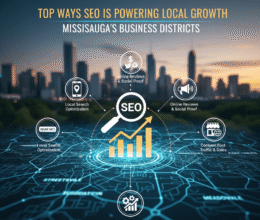SEO Content Strategy: 7 Tips for Creating SEO Content
Creating compelling content for SEO is essential for improving your website’s visibility and attracting traffic. You can develop content that performs well and engages your audience by implementing the correct SEO strategies and leveraging professional SEO services. Here are seven strategies for creating SEO content that can help you boost your search engine rankings.
SEO Content Strategy: 7 Tips for Creating SEO Content

Understand Your Audience
Before you start creating content, it is essential to understand your target audience. Knowing their interests, needs, and pain points will help you create content that speaks to them. Hiring professional SEO services might help you land in the spot you desire.
Key Actions:
- Conduct Audience Research: Use tools such as Google Analytics and social media insights to gather information about your target audience.
- Create Buyer Personas: Detailed profiles of your ideal customers can help guide your content creation process.
Conduct Keyword Research
Keyword research is the foundation of successful SEO strategies. Identifying the correct keywords ensures that your content matches what your target audience is looking for.
Key Actions:
- Use Keyword Research Tools: Ahrefs, SEMrush, and Google’s Keyword Planner can all help you find relevant keywords with high search volume and low competition.
- Focus on Long-Tail Keywords: Long-tail keywords are more specific and less competitive, making them easier to rank for.
Create High-Quality Content
High-quality content is valuable, informative, and engaging. It must address the needs of your audience and offer solutions to their problems. The content should also be well-researched, accurate, and up-to-date.
Key Actions:
- Write In-Depth Articles: Longer, deeper articles are more likely to rank higher in search results.
- Use a Clear Structure: To make your content more readable, divide it into sections with headings, subheadings, bullet points, and images.
Optimize On-Page Elements
Optimising on-page elements, such as titles, meta descriptions, headers, and images, is essential for making your content more search engine-friendly and user-friendly.
Key Actions:
- Include Keywords Naturally: Use your primary keywords in your title, headers, and throughout the content without keyword stuffing.
- Optimise Meta Descriptions: Create compelling meta descriptions that include your primary keywords and encourage users to click your link.
Use Internal and External Links
Linking to other relevant pages on your site (internal links) and authoritative external sites can boost your content’s credibility and SEO performance. It also helps improve user experience by providing additional valuable information.
Key Actions:
- Internal Links: Use links to related articles or product pages on your website to keep users interested and low bounce rates.
- Cite Authoritative Sources: Include external links to reputable websites to back up your content and increase its credibility.
Update Content Regularly
Search engines prefer fresh content. Regularly updating your existing content can boost its relevance and performance in search rankings.
Key Actions:
- Perform Content Audits: Regularly examine your current material to find ways to enhance it.
- Refresh Outdated Information: Revise old statistics, add new insights, and raise the overall quality of your content.
Measure and Analyze Performance
Measuring and analysing your content’s performance is essential for understanding the effectiveness of your SEO strategies.
Key Actions:
- Use Analytics Tools: Tools such as Google Analytics and Search Console can provide information about how your content is performing in terms of traffic, engagement, and conversions.
- Adjust Your Strategies Based on Data: Use the data to fine-tune your SEO strategies and improve future content.
Conclusion
In conclusion, creating SEO content that ranks well and engages your audience requires a well-planned strategy. An effective SEO strategy may be made by understanding your audience, conducting extensive keyword research, creating high-quality content, optimising on-page features, utilising internal and external links, updating content regularly, and assessing performance. Professional SEO services may also help you implement these methods more successfully, ensuring your content ranks as high as possible in search engine results.

















